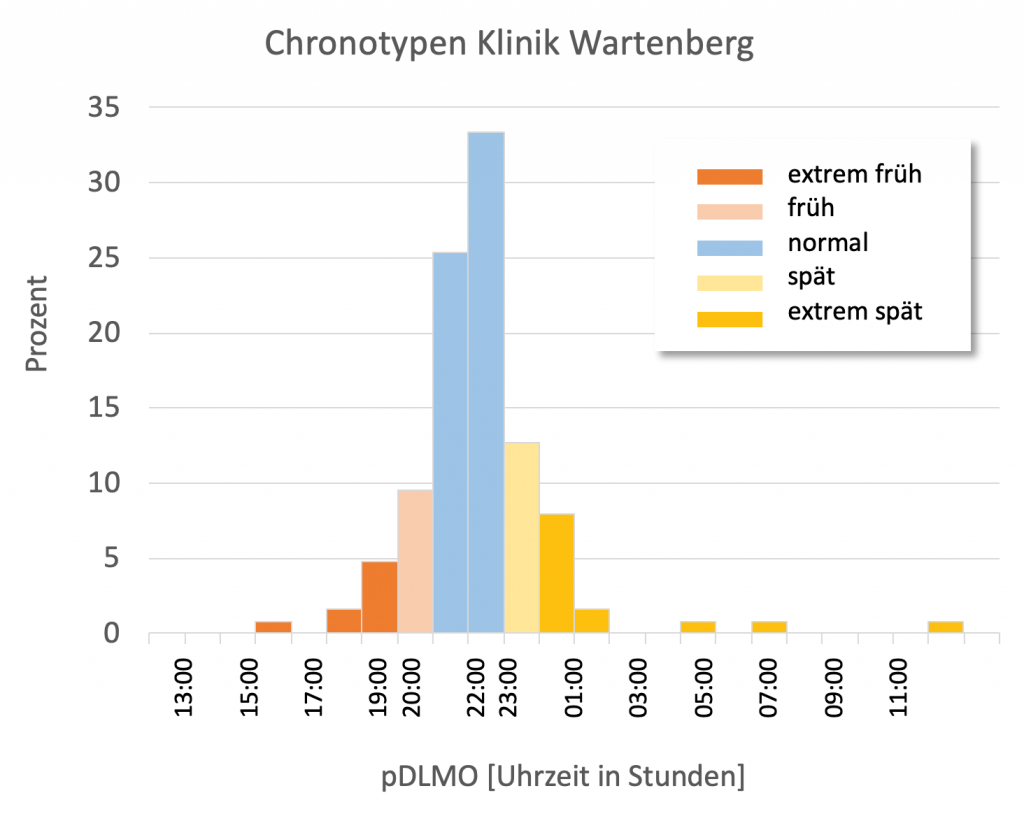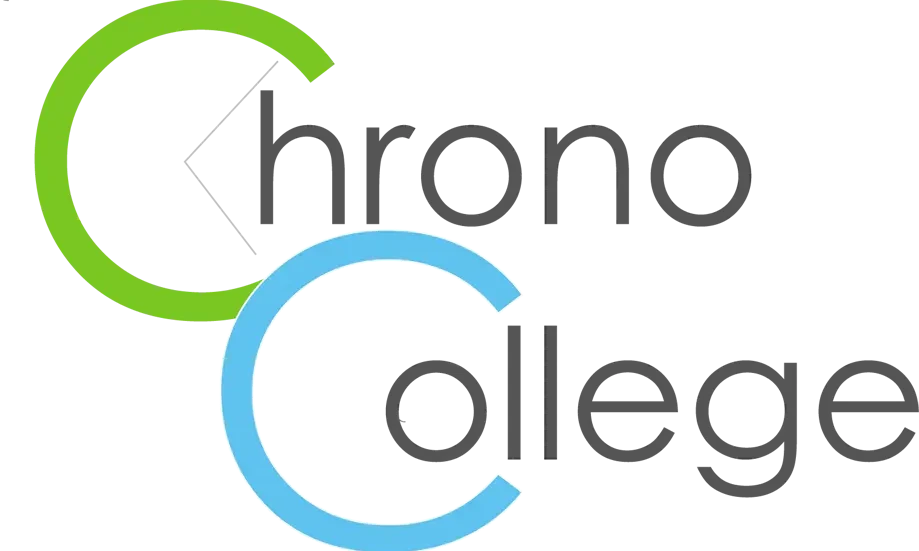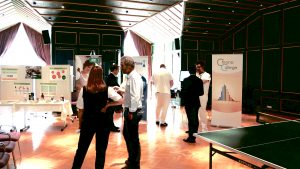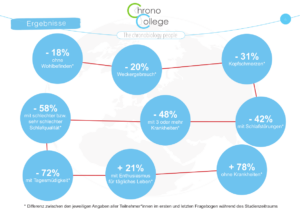
Innovation in shift planning – At the beginning there was a lecture by me (Michael Wieden) on the subject of“Chronobiology in personnel scheduling” and subsequently a joint workshop with managers from the Wartenberg Clinic. As a result, the “Chronotype-oriented personnel scheduling” project was developed at the beginning of 2019. With this, we entered uncharted territory worldwide on this scale. Also, the RNA chronotype test (blood test – precursor of the BodyClock hair root test) used in this process has never been used so extensively.
Initial situation – sleep disorders due to shift work
During a series of lectures given by us to decision-makers from the business and healthcare sectors on behalf of the AOK (leading german health security company) in Bavaria, we subsequently held a discussion with the clinic management and those responsible for BGM. In the course of the conversation, the idea of basing shift scheduling on chronotypes crystallized. The basis for this was the results of regular employee surveys. The issue of “sleep disorders” was increasingly being described as stressful, especially among employees working in shifts. In a subsequent workshop, the thoughts were put into concrete terms and conceptually summarized in an overall project “chronobiology in clinical practice”.
The project “COPEP” at clinic Wartenberg
Under the scientific supervision of the chronobiologist Prof. Dr. habil. Thomas Kantermann of the FOM in Essen and in association with the “BodyTime” team around the chronobiologist Prof. Achim Kramer at the Charité in Berlin, we jointly launched the first sub-project, the study “Chronotype-oriented workforce scheduling” in July 2019. In advance, we informed the employees about the topic and the course of the project in several presentations and discussions.
Milestones
-
Health days at clinic Wartenberg – Information for raising awareness of chronobiology (ChronoCollege®) July 2019 – In-house KickOff Health Day in July 2019 together with the BodyTime team. Here we informed about the project and recruited volunteers for an initial study. This and other measures ultimately led to over 120 employees signing up for voluntary chronotyping based on a RNA blood test.
- October 2019 – Blood collection and transport of samples to Charité by BodyTime will occur as part of additional internal health days.
- November 2019 – sending (online) chronotyping results to participants based on the DLMO value detected.
- November 2019 – Interviews by us with participants who had released results for further processing to identify additional times (e.g., travel times, morning/evening hygiene, child care, etc.). We then added these times to the biological sleep time of the employees determined by the blood test.
- December 2019 – Determination of a recommended working window as a basis for further chronotype-oriented shift planning or personnel deployment planning by us.
- January -March 2020 – elaboration of chronotype-oriented shift planning based on our recommended work windows by Klink Wartenberg.
- 01.04.2020 – Start of the new working hours
- 30.07.2020 – End of the study period
- From 08.2020 Scientific evaluation
- June 2021 – Presentation of the results and achievements
- September 2022 – Start of the follow-up project “ChronoClinic”
Results and achievements
- 58% less with poor sleep quality and
- 72% less with daytime sleepiness
- 20% reduced alarm clock use
- and much more
The complete list of results incl. the project description can be found in our whitepaper for download here.
Chronotype distribution within the Wartenberg Clinic

Last but not least, the clinic already has an overview of how some of the employees “tick” through the evaluation of the RNA tests. This is the starting point for all further measures in every project. From the graph on the right, it can be seen that the distribution is clearly clustered around a DLMO between 21:00 and 23:00. Such an accumulation was to be expected. However, the late types are particularly interesting. Some employees have a DLMO of later than 01.00. This means that their biological night occurs between 2:30 a.m. and 10:30 a.m. There are even people in the test field whose biological night will be revealed later. These are extreme late types in this case, even having a biological night between 06:30 and 14:30 or 08:30 and 16:30. In turn, however, also extremely early types show up, whose biological night partly starts already at 16.30 o’clock and ends around 4.30 o’clock. So the biological night does not have to run together with the earthly night at all.
Thus, it can actually be shown that such extreme types can also be found in companies. These are important findings, especially for the assignment of early and night shifts within shift work.
Awareness
Improvements within shift scheduling have so far been primarily related to the type of rotation. How the employees themselves tick was largely irrelevant. The most important requirement is therefore the conviction of the management. Only through the enthusiasm generated in advance among decision-makers for the opportunities that lie in this topic was it possible to create awareness within the company and to be able to embark on this first path of the study. Both the participants and the decision-makers now see many things with completely different eyes. This alone can already be seen as a success.
Information
Changes in shift work are a very sensitive undertaking. In addition, chronobiology is a field that is still virtually unknown to the general public and, in addition to opportunities, also holds potential for fears of change if some things are only considered superficially or if they are not explained. The number of participants in this project was reached through intensive information from us, the BodyTime project group, the scientific management Prof. Thomas Kantermann, who I consulted, and above all through the company’s internal project team. It takes thoughtful information to attract people to a blood test. Our personal interviews were therefore particularly important in order to be able to assess fears based on personal situations and to be able to reduce them based on this.
Further course
The study itself is “only” a part of the planned overall project“ChronoClinic – Chronobiology in the Clinic” at the Wartenberg Clinic, which also includes, for example, topics of lighting and nutrition. However, it does provide a basis for expression.
In September 2021, the follow-up project of ChronoClinic . Over 50 other employees* were chronotyped with the new BodyClock RNA test based on hair roots/hair follicles and subsequently coached by myself and my wife based on the respective results report. Over 80% were now also willing to share their results with clinic management to optimize work and shift schedules based on chronotypes. The “COPEP®” system we developed for this purpose was refined after the first study, resulting in positive effects.
- Increased acceptance when releasing data for workforce planning,
- more positive personal effects through the individual one-on-one coaching sessions, etc.
The results confirm the success of the first project. They are available upon request.
Projektsite Wartenberg Clinic
Press & Media
WDR TV-Report “Markt”, Kugel2 at 22.06.2022. (beginning with min 28.30)
Projectpartner
Charité Berlin/Project group Bodytime (Prof. Achim Kramer
BGW – Professional association for health service and welfare care
Zu allen Themen bietet Michael Wieden (aliamos GmbH) Vorträge an. Einen Überblick finden Sie hier. | Sie wollen Feedbacks zu den Vorträgen sehen? Die haben wir hier. | Abonnieren Sie den aliamos Newsletter |
|---|
Michael Wieden beschäftigt sich als Betriebswirt seit 2002 mit der Chronobiologie im Personalmanagement. Schon 2003 hielt er hierzu seinen ersten Vortrag auf einer Veranstaltung der INQA (Initiative der neuen Arbeit).
Zu den Themen „Chronobiologie im Personalmanagenement“ sowie mobilen Arbeitsformen hat er bereits Bücher geschrieben, und dabei den Begriff „Liquid Work®“ geprägt.
Zusammen mit Claudia Garrido Luque gründete er 2014 die aliamos GmbH und berät seit dem Kommunen, Unternehmen und Kliniken zum Betrieblichen Gesundheitsmanagement. Von 2012 bis Ende 2016 war er externer Wirtschaftsförderer für die Stadt Bad Kissingen und Initiator des weltweit einzigartigen Projektes „ChronoCity – Pilotstadt Chronobiologie“. Zu ChronoCity®, Chronobiologie-Themen und mobilen Arbeitsformen trat er wiederholt als Experte in verschiedenen Fernsehformaten (z.B. TerraX, Planet Wissen, W wie Wissen, Xenius etc.) auf. Zudem war er von 2014 bis 2017 Mitglied des Arbeitskreises „Zeitgerechte Stadt“ der ARL – Akademie für Raumforschung und Landesplanung in Hannover.
Aktuell hält er Vorträge zum Thema “Chronobiologie im Personalmanagement” und “Mobile Arbeitsformen”, und berät Unternehmen bei der Umsetzung chronobiologischer Ansätze in Unternehmen und Kliniken.


